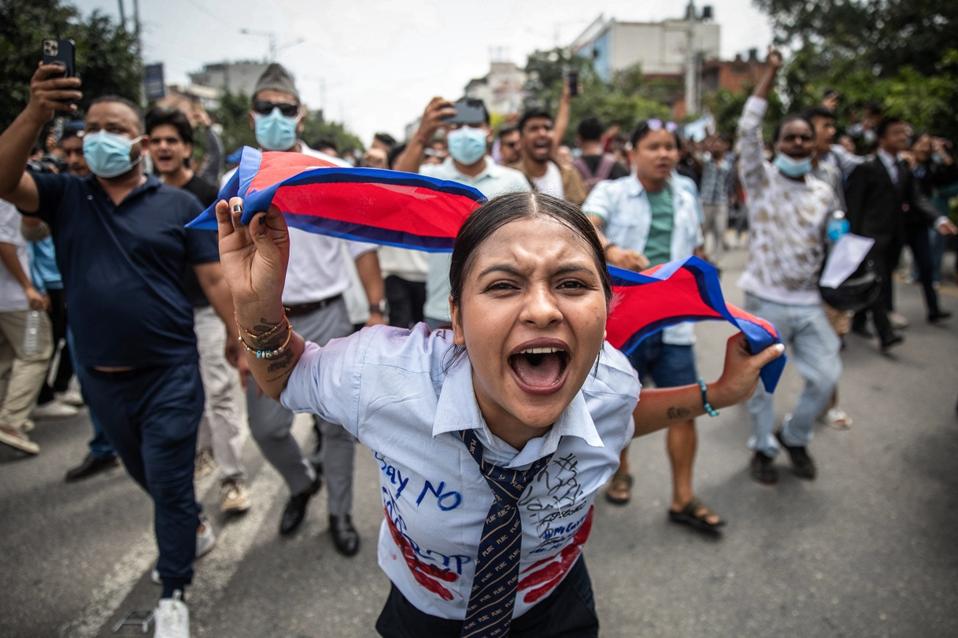Every day it feels like the headlines get grimmer. Recently, it was reported that residents of the South Shore neighborhood of Chicago were forcibly removed from their apartments with federal immigration agents also dragging out unclothed children from their homes, separating them from their mothers, according to Newsweek. The Department of Homeland Security (DHS) told Newsweek that they were in search of individuals tied to the Venezuelan gang Tren de Aragua and had reason to believe the building and outlying area contained people involved in drug trafficking and other related offenses.
In cities across the country, there has been an uptick in raids by U.S. Immigration and Customs Enforcement (ICE). Outside of the U.S., there are multiple genocides taking place, youth uprisings in places like Madagascar, Morocco, and Nepal, and targeted violence and ethnic cleansing in places like the Democratic Republic of Congo. A common question that many may be asking themselves right now is how they are supposed to work while communities around the country and around the world are under attack.
A 2022 report from the American Civil Liberties Union (ACLU) revealed that “racial profiling, poor jail conditions and other civil rights violations were widespread among the 142 state and local law enforcement agencies ICE describes as participants in the 287(g) program.” There is a common misconception that anti-immigrant sentiments only impact Latin American communities, but we must understand that the harm that one vulnerable community faces is interconnected to the subjugation faced by other marginalized communities. ICE raids are not just an issue that impacts Latinos: African and Asian communities have also been targeted. The ICE raids that took place in the South Shore neighborhood of Chicago, happened in a predominantly Black community. We must never forget that all our oppressions are interconnected.
Systemic racism and xenophobia play an integral role in the state-sanctioned violence that is currently taking place; Black and Latin American communities in the U.S. experience harm at an institutional level that greatly impacts their life experiences. Racial trauma can affect an employee’s career long-term and employees who experience racial trauma can have difficulty focusing at work, engaging in work-related tasks and can experience physiological responses like sleep disturbances, chest pains or impaired breathing, reported Maya Richard-Craven. Organizational leaders cannot act like what’s happening around the country and the world is happening in a vacuum. It’s challenging to be fully present at work while witnessing or experiencing harm at a mass scale, regardless of whether it is impacting your community. Research indicates that repeated exposure to traumatic events can cause not only post-traumatic stress disorder (PTSD) but can also lead to a form of second-hand traumatic stress reactions due to repeated exposure.
Employers should recognize the weight of watching what’s happening around the world in real-time, understand how it is impacting employees, and develop strategies to help employees cope, manage stress and feel supported. In this day and age, there is no such thing as neutrality—companies should consider making public statements denouncing harm that different impacted communities are experiencing. There should also be flexibility around time-off requests and employee assistance programs should provide robust mental health care and culturally competent support.
With reports indicating an increase in targeted violence against marginalized communities, it may feel like everyone is okay with what’s transpiring; we cannot and should not normalize showing up to work with all that we are grappling with and acting as if it’s business as usual. It’s worth noting that in July 2025, PBS reported that a Gallup poll revealed that American sentiments towards immigrants have shifted in a more positive direction, with 8 out of 10 Americans saying immigration is “a good thing” for the country. There is power in the people. If nothing else, we each have varying levels of power and influence and should continue to use our voice in various ways to resist and speak out against the harms that impact our communities.

